Introduction

Your credit score is an essential component of your financial health. It is a numerical representation of your creditworthiness, and it helps lenders determine whether to approve your loan or credit card application. In Singapore, credit scores range from 1000 to 2000, with a higher score indicating a better credit history. If you want to know how to check your credit score in Singapore, this article will guide you through the process.
Understanding Credit Scores in Singapore
Before you obtain your credit report, it’s essential to understand how credit scores work in Singapore. Credit Bureau Singapore (CBS) is the country’s leading credit bureau, and it calculates your credit score based on your credit history. Your credit history includes your credit accounts, payment history, outstanding debt, and credit inquiries. CBS uses a proprietary algorithm to calculate your credit score, and it takes into account various factors like your payment behavior, credit utilization, and credit history length.
Key Takeaways
- Your credit score is a critical component of your financial health, and it helps lenders determine whether to approve your loan or credit card application.
- Credit Bureau Singapore (CBS) is the leading credit bureau in Singapore, and it calculates your credit score based on your credit history.
- To obtain your credit report, you can either request a free report from CBS or purchase a report that includes your credit score.
Understanding Credit Scores in Singapore
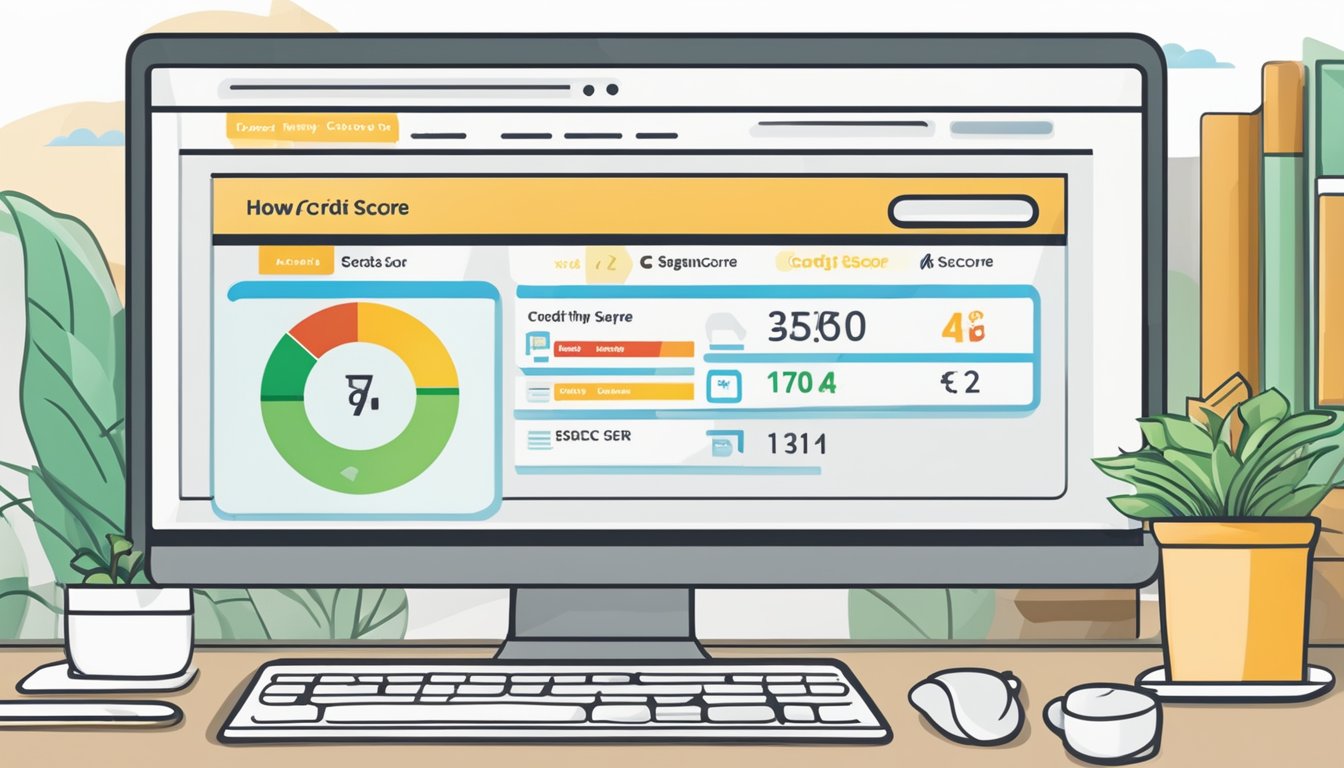
When it comes to checking your credit score in Singapore, it is important to understand what it means and how it is calculated. Here, we will discuss the role of Credit Bureau Singapore (CBS), credit scoring algorithms and risk assessment, and interpreting your CBS credit score.
The Role of Credit Bureau Singapore (CBS)
Credit Bureau Singapore (CBS) is the central repository of credit information in Singapore. It collects and maintains credit information from various sources, such as banks and financial institutions. CBS also provides credit reports and credit scores to individuals and businesses upon request.
Credit Scoring Algorithms and Risk Assessment
Credit scoring algorithms are used to calculate credit scores based on credit data. These algorithms take into account various factors, such as payment history, credit utilization, and length of credit history.
Risk assessment is the process of evaluating the probability of default. Banks and financial institutions use credit scores to assess the creditworthiness of individuals and businesses. A higher credit score indicates a lower risk of default, while a lower credit score indicates a higher risk of default.
Interpreting Your CBS Credit Score
Your CBS credit score is a three-digit number ranging from 1,000 to 2,000. A higher score indicates a lower risk of default, while a lower score indicates a higher risk of default.
It is important to note that a credit score is not the only factor that banks and financial institutions consider when evaluating creditworthiness. Other factors, such as income and employment history, may also be taken into account.
To obtain your CBS credit score, you can request an online report from Credit Bureau Singapore (CBS) at a cost of $8.00 (inclusive of GST). If you have recently made an application for a loan or credit facilities from a bank, you can get it free within 30 days of your application.
In summary, understanding credit scores in Singapore is crucial for anyone who wants to take out a loan or credit facilities. By knowing your credit score and how it is calculated, you can take steps to improve it and increase your chances of being approved for credit.
How to Obtain Your Credit Report
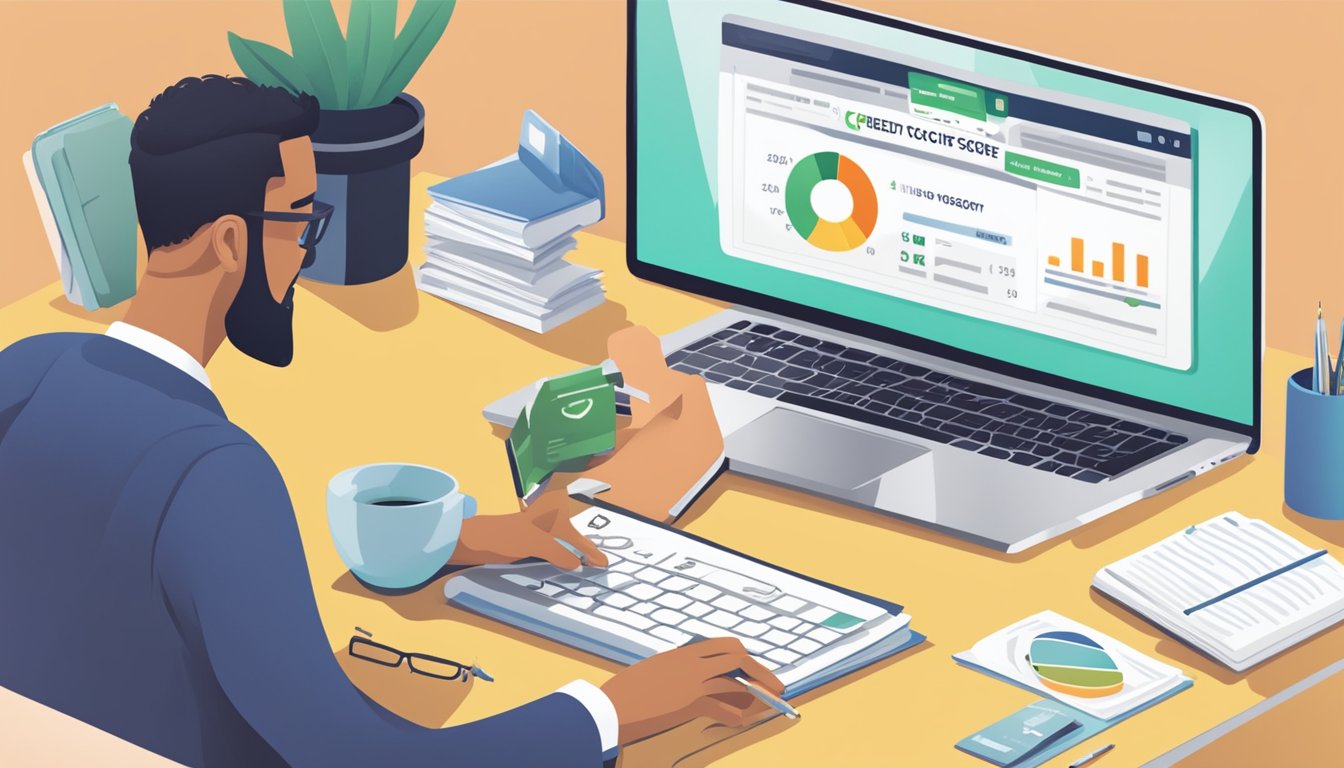
If you’re looking to obtain your credit report in Singapore, there are a few steps you need to take. In this section, we’ll go over how to request your report, as well as where to access it.
Steps to Request a Free Credit Report
Firstly, it’s important to note that you can obtain a free credit report in Singapore. To do so, you’ll need to make your request through the Credit Bureau Singapore (CBS). Here are the steps to follow:
- Visit the CBS website and navigate to the “Credit Report” section.
- Click on the “Request Your Credit Report” button.
- Fill out the online form with your personal information and submit it.
- You may be asked to provide additional documentation to verify your identity.
- Once your request has been processed, you’ll receive a copy of your credit report via email.
It’s important to note that you can only request a free credit report once per year. If you need to access your report more frequently, you’ll need to pay for it.
Locations to Access Your Report
In addition to requesting your report online, there are a few other locations where you can access it. These include:
- SingPost branches: You can request a copy of your credit report at any SingPost branch. You’ll need to present a physical ID for verification.
- Credit Bureau office: You can also visit the Credit Bureau office in person to request your report. The office is located at 2 Shenton Way, #20-02 SGX Centre 1, Singapore 068804.
It’s worth noting that if you request your report in person, you’ll need to pay for it. The cost of a credit report from CBS is $8.00, inclusive of GST.
By following these steps, you’ll be able to obtain your credit report in Singapore easily and quickly.
Analysing Your Credit Report

When you receive your credit report, it may seem overwhelming. However, understanding the information on the report is crucial to managing your finances and improving your credit score. Here are some key things to look out for when analysing your credit report.
Deciphering Account Status History
The account status history section of your credit report provides information about your credit accounts, including credit cards, loans, and mortgages. This section will show you the status of each account, whether it is open or closed, and whether you have made payments on time.
If you have missed payments, this will be reflected in your account status history. The longer you go without making payments, the more it will affect your credit score. Therefore, it is important to make payments on time and keep your accounts in good standing.
Understanding Payment Patterns and History
Your payment history is a record of all the payments you have made on your credit accounts. This section will show you how much you owe on each account, how much you have paid, and how much you have missed.
If you consistently make late payments or miss payments altogether, this will negatively impact your credit score. Therefore, it is important to make payments on time and pay off your debts as soon as possible.
Identifying Red Flags in Credit Reports
When analysing your credit report, it is important to look out for any red flags that may indicate potential issues. These could include default records, bankruptcy records, or other negative information.
If you notice any red flags on your credit report, it is important to take action as soon as possible. This may include paying off debts, contacting creditors to negotiate payment plans, or seeking professional financial advice.
By understanding the information on your credit report and taking action to improve your credit score, you can take control of your finances and achieve your financial goals.
Improving Your Credit Score
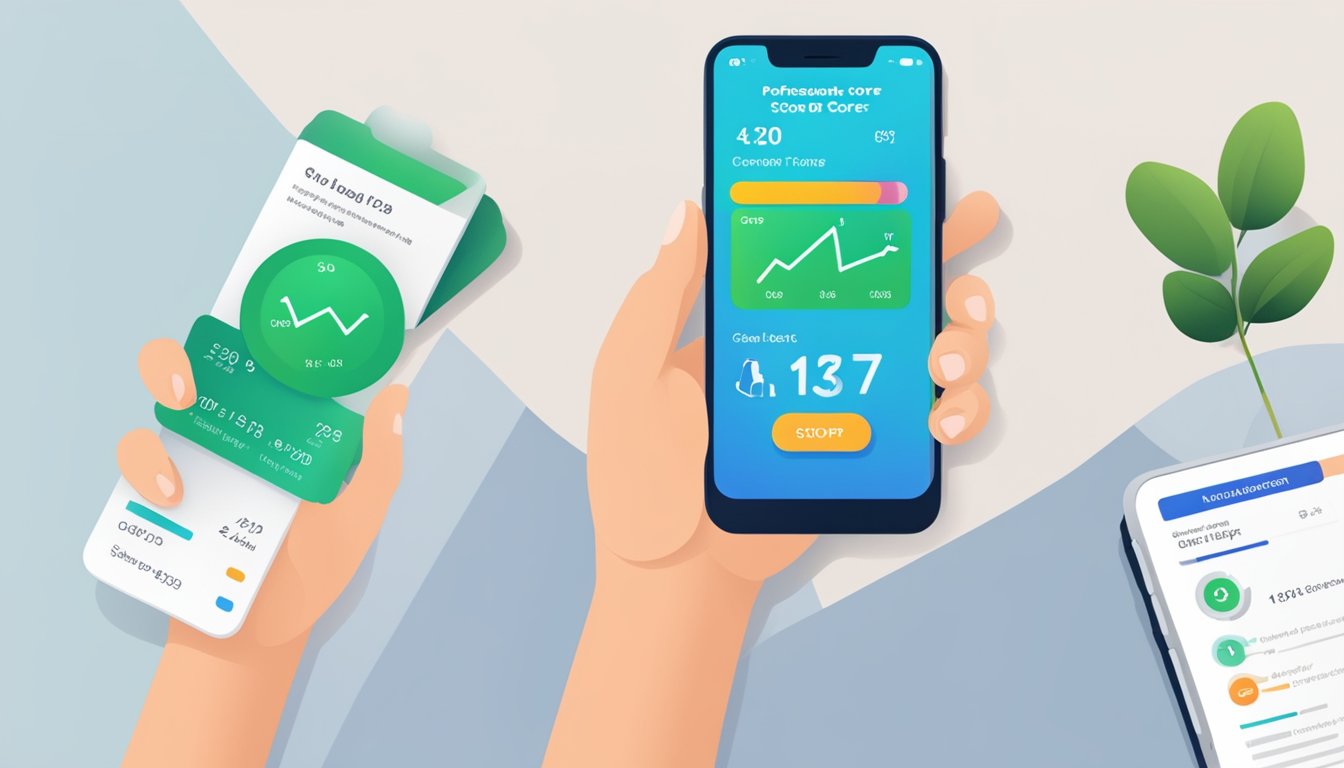
Improving your credit score is essential if you want to have better access to credit cards and loans. A good credit score can help you get lower interest rates and better terms on loans. Here are some tips on how to improve your credit score:
Responsible Credit Card and Loan Management
One of the most important factors that affect your credit score is your credit utilization ratio. This ratio is the amount of credit you are using compared to the total credit available to you. To improve your credit score, you should aim to keep your credit utilization ratio below 30%.
Responsible credit card management involves using your credit cards wisely and paying your bills on time. You should always pay your credit card bills in full and on time to avoid late fees and interest charges. Additionally, try to avoid carrying a balance on your credit cards as this can negatively impact your credit score.
Strategies for Debt Repayment
If you have outstanding debts, it’s essential to have a payment plan in place to pay them off. Start by prioritizing your debts and paying off the ones with the highest interest rates first. This will help you save money on interest charges and reduce your overall debt load.
Additionally, consider consolidating your debts into a personal loan with a lower interest rate. This can help you save money on interest charges and simplify your debt repayment process.
The Impact of New Credit Applications
Every time you apply for a new credit card or loan, it can negatively impact your credit score. This is because each application results in a hard inquiry on your credit report, which can lower your credit score.
To improve your credit score, try to limit the number of new credit applications you make. Additionally, only apply for credit when you really need it and avoid applying for multiple credit cards or loans at the same time.
By following these tips, you can improve your credit score and increase your chances of getting approved for credit cards and loans with better terms and interest rates. Remember to always practice responsible credit card and loan management and have a solid debt repayment plan in place.
The Consequences of a Poor Credit Score
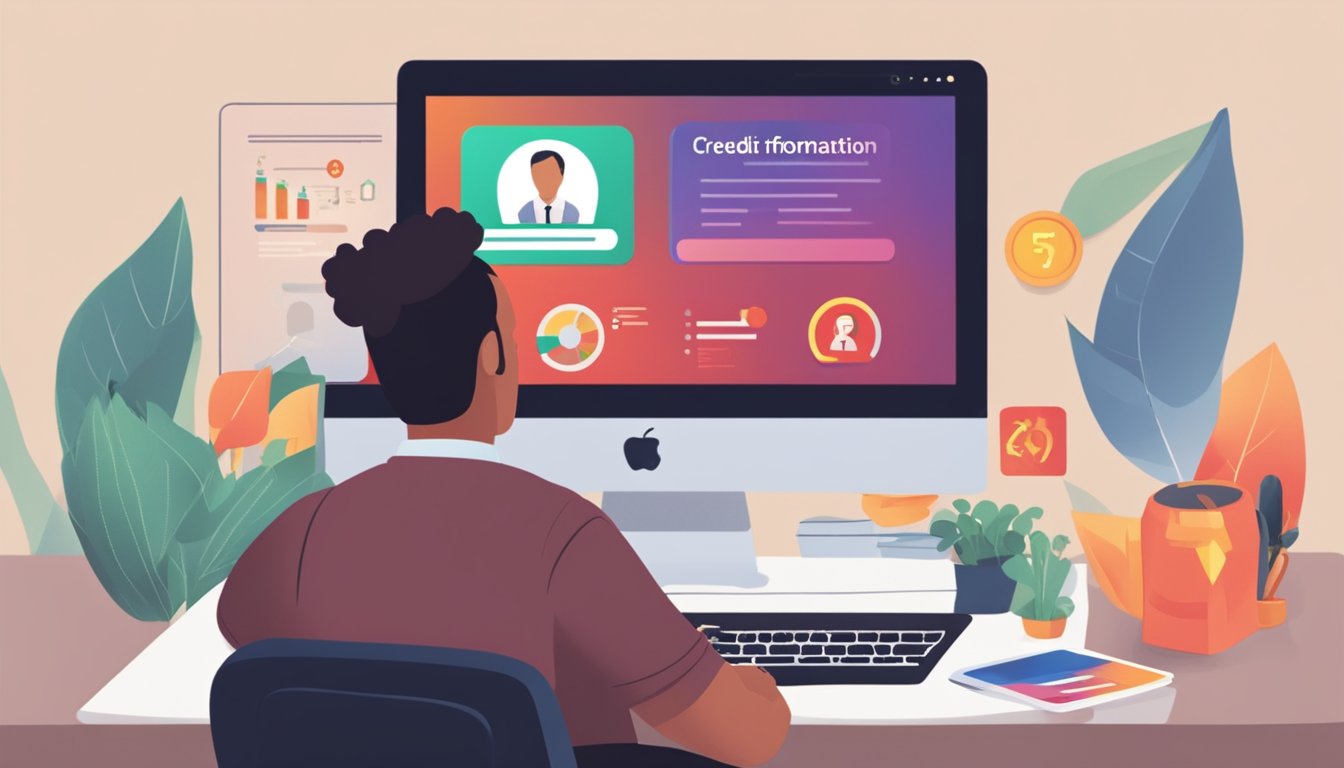
Your credit score is an essential part of your financial landscape. A poor credit score can have significant long-term financial implications, including affecting your loan approval and interest rates. In this section, we will explore the effects of a poor credit score on your financial health.
Effects on Loan Approval and Interest Rates
When you apply for a loan, your credit score is one of the factors that lenders consider when assessing your credit risk. A low credit score can make it challenging to get approved for a loan. Even if you are approved, you may have to pay higher interest rates, which can make borrowing more expensive.
Long-Term Financial Implications
A poor credit score can have long-term financial implications. For example, if you have a low credit score, you may find it challenging to get approved for a mortgage loan. This can make it difficult to buy a home, which can have a significant impact on your financial future.
Moreover, a low credit score can increase the risk of defaulting on loans. Defaulting on loans can lead to legal action, wage garnishment, and even bankruptcy. These consequences can have a long-lasting impact on your financial health.
In conclusion, a poor credit score can have significant financial consequences. It can affect your loan approval, interest rates, and long-term financial health. To avoid these consequences, it is essential to maintain a good credit score by paying your bills on time, keeping your credit utilization low, and monitoring your credit report regularly.
Frequently Asked Questions
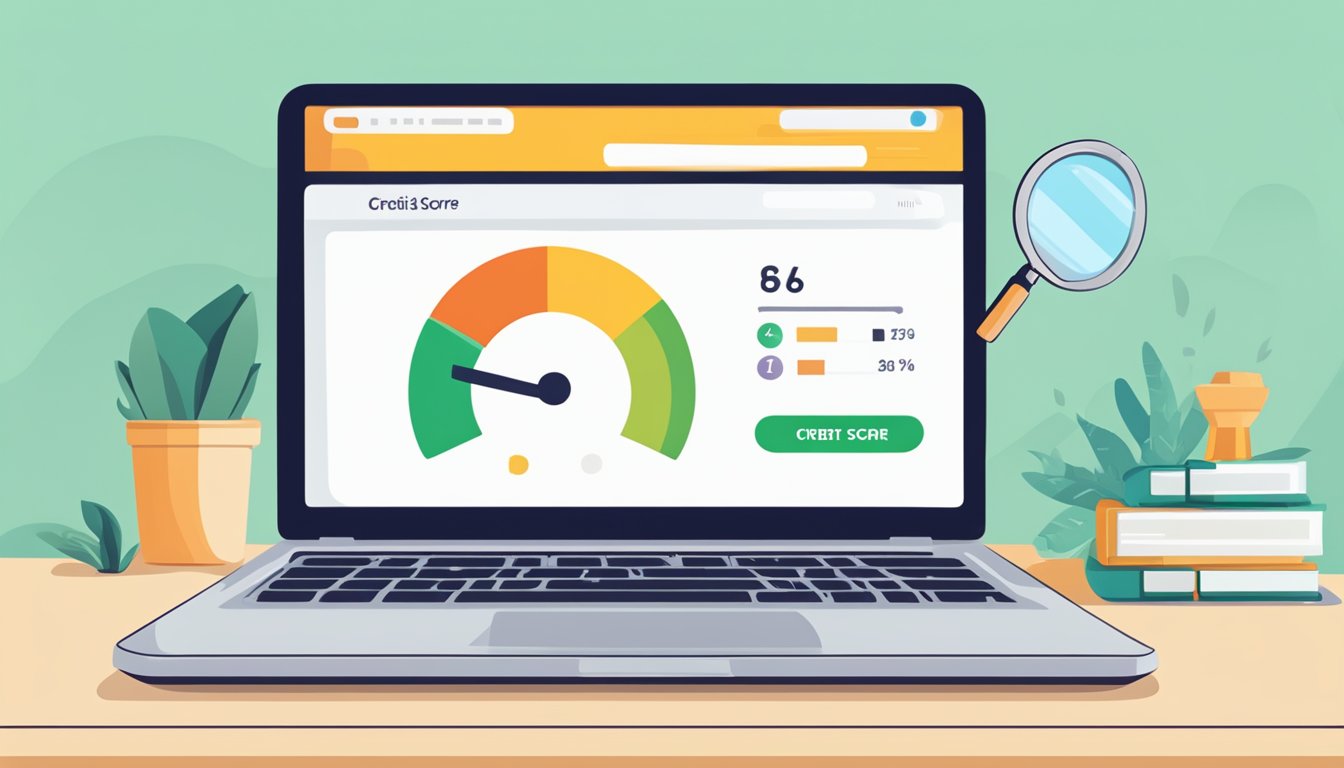
What’s the best way to obtain my credit rating online?
The best way to obtain your credit rating online is by requesting an online report from Credit Bureau Singapore (CBS) at the cost of $8.00 (inclusive of GST). You can also obtain your credit score from other credit reporting agencies, but CBS is the most widely used agency in Singapore.
Can I access my credit report without charge?
Yes, you can access your credit report without charge if you have recently made an application for a loan or credit facilities from a bank. You can get it free within 30 days of your application. However, if you want to obtain your credit report outside of this period, you will have to pay a fee.
Where can I find a sample of a CBS report?
You can find a sample of a CBS report on the Credit Bureau Singapore website. The sample report will show you what information is included in a credit report and how it is presented.
How might one go about enhancing their credit score?
To enhance your credit score, you should make timely payments of loans, reduce debt at all costs, maintain a mix of credit, limit new credit applications, and regularly check your credit report. Improving your credit score takes time and requires patience, but it is possible with these strategies.
How do I go about getting my credit bureau report?
To get your credit bureau report, you can request it online from Credit Bureau Singapore (CBS) or go to their office in person. You will need to provide personal identification documents and pay a fee to obtain your credit report.
What constitutes an excellent credit score over here?
In Singapore, an excellent credit score is typically considered to be above 750. However, different lenders may have different criteria for assessing creditworthiness, so it’s important to check with your lender to see what their specific requirements are.




